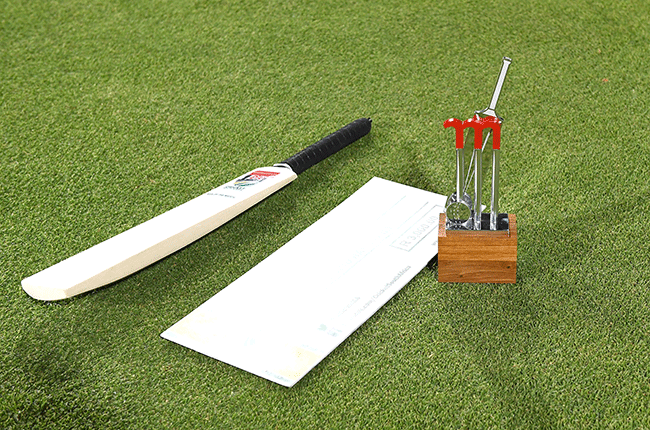South Africa’s professional cricketers have gone back to their days of high school cricket tours and varsity camps, as they go to great lengths to ensure the staging of the current Momentum One-Day Cup competition.
As they’ve adapted to life in their Potchefstroom bio bubble, the country’s six professional franchises have foregone hotel rooms and room service for dormitory-style accommodation and individually packed meals that would have had them reminiscing about their school days.
All 15 matches in the competition are taking place at Senwes Park in a bio-secure environment (BSE) in the North West university town, with all six teams camping out in Potchefstroom at various stages of the competition.
Cricket South Africa’s Head of Cricket Pathways, Edward Khoza, says the players and match officials are making massive sacrifices to ensure the tournament continues safely in the midst of a devastating global pandemic, but that their attitudes and approach had been first-class.
“Running a tournament with six teams in the same venue in the middle of a global pandemic is something you can’t benchmark. It’s a situation you can’t understand or explain, until you live through it. You learn something new every day, but for us at Cricket South Africa it is about safety first before anything else,” says Khoza.
As he breaks down the tournament operations, Khoza says CSA are staging the competition under the watchful eye of its Chief Medical Officer, Dr Shuaib Manjra, in strict accordance with the gazetted National Disaster Regulations.
Players first started arriving in camp on Monday January 4 either by bus or with their own transport. After a thorough health check by an on-site medical team, they were allowed in the secure bio bubble only after producing a negative Covid-19 test and then had to self-isolate for the next 72 hours before being allowed to train in small groups of four. Only after returning another negative test 72 hours later were they allowed to train with the broader team group before the start of the tournament.
“We knew that if we needed to salvage the season, it had to be in a controlled environment. The North West University’s PUK Sports Village is within the stadium precinct and that is where we are hosting all the teams. It has all the necessary sporting infrastructure and support we need. It has different apartment blocks and we’ve been able to separate the teams and fit each team into their own block. If you’re from the Momentum Multiply Titans Titans and you’re found in the VKB Knights block, it would lead to automatic expulsion from the bubble. And even within their own blocks, only a maximum of three people are allowed to congregate together. Initially of course it was a shock to the system for the players, but there’s no doubt they would rather be here than not playing cricket at all,” says Khoza.
With 80 double rooms, two conference rooms, dining facilities and physio rooms, the facility has the basics to host the country’s top cricketers, if not quite in the manner they would normally be accustomed to. The village also has a 25-metre swimming pool, which for health reasons is unfortunately off-limits to the players.
With six teams in the tournament, to make the Potch bio bubble work CSA have split the tournament into two pools, with Pool A’s group matches concluding first on 16 January to determine the two semi-finalists, before the start of Pool B’s matches on 22 January.
On the morning of the 17th January, the three teams in Pool A will vacate the bubble and safely make way for the three teams in Pool B to take their place to determine the other two semi-finalists.
Khoza has been excited to see young talents like Thando Ntini and ambidextrous spinner Gregory Mahlokwana – who have come through CSA’s pipeline – feature in the Momentum One-Day Cup, and also seeing experienced players like Kyle Abbott, Henry Davids and Robbie Frylinck ploughing back their knowledge to the younger players in their franchises. He’s also enjoyed the energy and exuberance of former players turned coaches like Imraan Khan, Quinton Friend, Geoffrey Toyana and the legendary Allan Donald overseeing their teams.
The Momentum One-Day Cup has needed extraordinary measures, for extraordinary times, but Khoza and the players are conscious of just what is at stake to ensure the players – and the game – remains in robust health.
“The importance of this environment is heavily reliant on the attitude and compliance of the players. Cricket is not immune from what’s happening to the broader public in terms of the devastating impact of the pandemic. Cricket does not supersede that. As Cricket South Africa we have had to show leadership. We were firm from the beginning and have not compromised on the rules we’ve set out and communicated to the players from day one. We do not want to create more problems for the government, but we are doing our utmost to control the environment, and to roll out cricket in a responsible way,” says Khoza.

